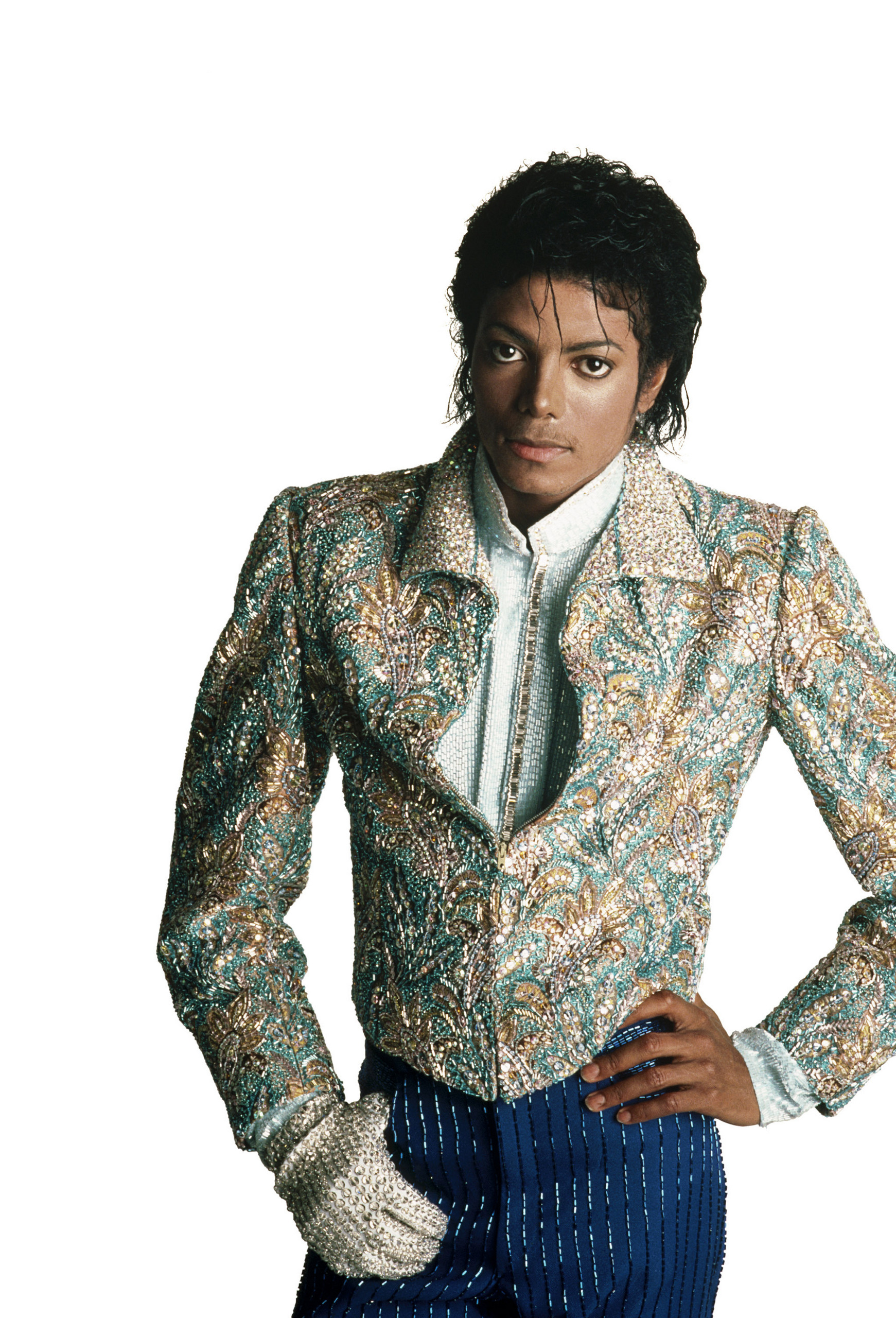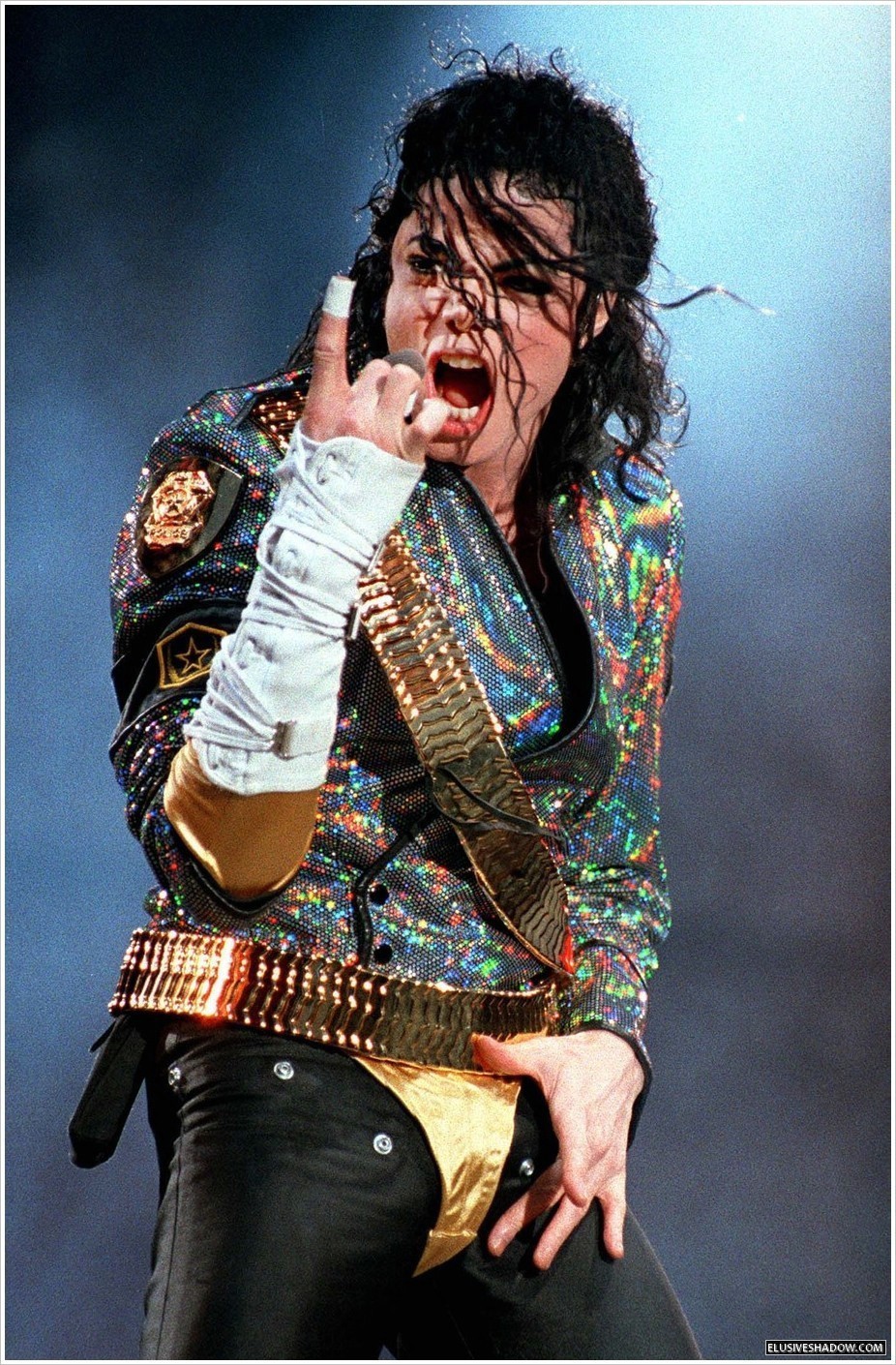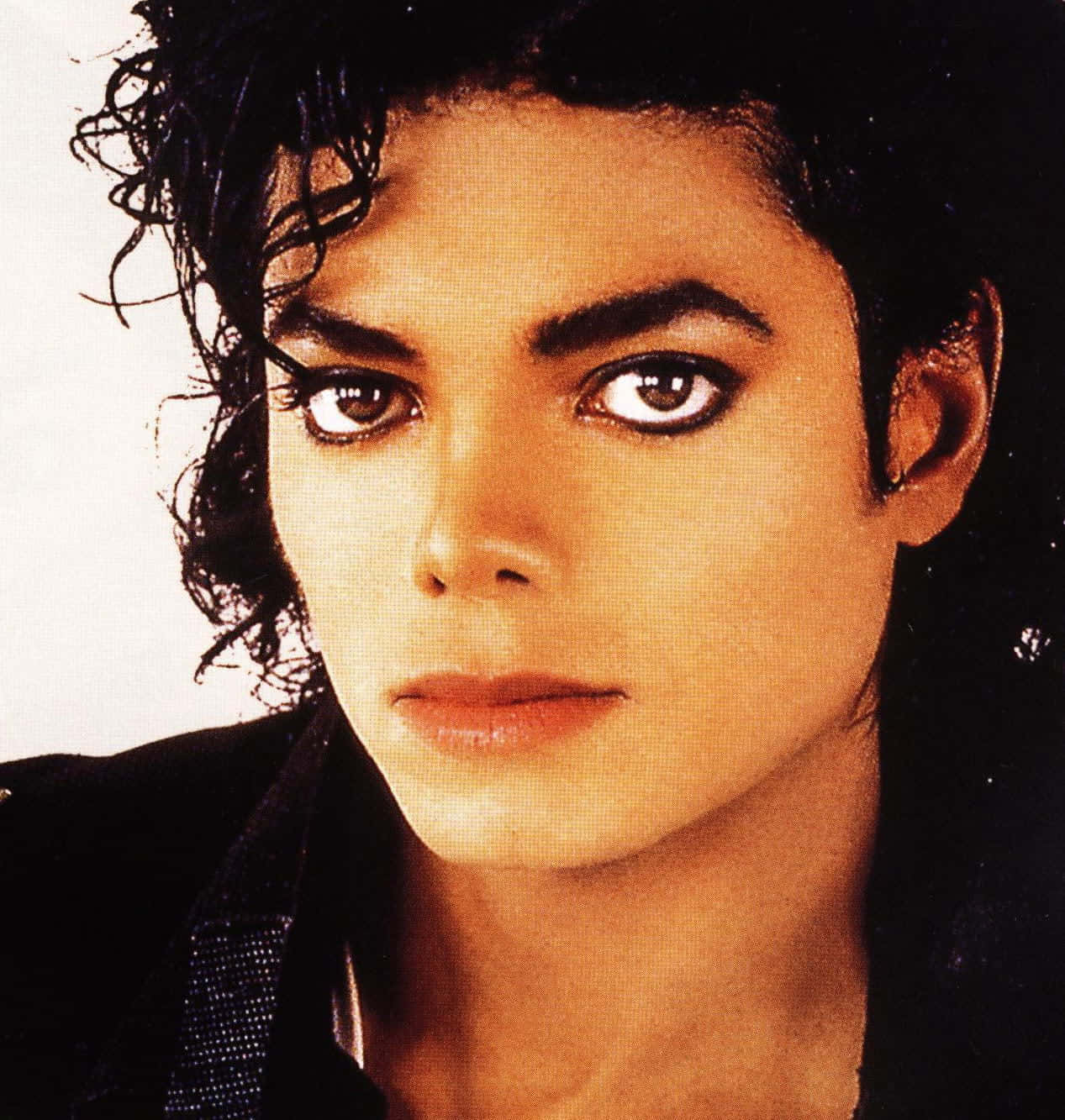Is Michael Jackson Still Alive? Unraveling Persistent Theories
**The sudden passing of Michael Jackson on June 25, 2009, sent shockwaves across the globe, leaving millions of fans in disbelief and mourning. Known universally as the "King of Pop," his death marked the end of an era for music and entertainment. Yet, in the wake of this profound loss, a peculiar and enduring phenomenon emerged: the persistent belief among some that Michael Jackson is still alive. This article delves into the origins and evolution of these "Michael Jackson alive" theories, examining the claims, the psychological underpinnings, and the undeniable reality of his passing, while celebrating his lasting legacy.**
It is important to clarify from the outset that the "Data Kalimat" provided for this article, which references the Hebrew name "Miḵaʾel" meaning "who is like God?", describes Michael the Archangel, his biblical roles, and even touches upon a retail chain named Michaels. This information, while interesting in its own context, bears no relevance whatsoever to Michael Jackson, the legendary pop superstar. Therefore, this article will focus exclusively on the requested topic of "Michael Jackson alive" theories, drawing on widely available public information regarding his life, career, and confirmed passing.
Table of Contents
- The King of Pop: A Brief Biography of Michael Jackson
- The Day the Music Died: Michael Jackson's Passing
- The Genesis of "Michael Jackson Alive" Theories
- Examining the "Evidence": Debunking Common Claims
- Why Do These Theories Persist?
- The Psychological Landscape of Conspiracy Theories
- Michael Jackson's Enduring Legacy Beyond the Rumors
- Conclusion: The Truth and the Legend
The King of Pop: A Brief Biography of Michael Jackson
Michael Joseph Jackson, born on August 29, 1958, in Gary, Indiana, was an American singer, songwriter, dancer, and philanthropist. Often hailed as the most successful entertainer of all time, his career spanned over four decades, beginning as a child star with the Jackson 5 and evolving into an unparalleled solo career that redefined pop music, music videos, and global entertainment. His groundbreaking albums like "Off the Wall," "Thriller," "Bad," and "Dangerous" shattered sales records and cultural barriers, earning him the undisputed title of the "King of Pop."
Jackson's influence extended far beyond music. He pioneered the use of music videos as a powerful artistic and promotional tool, transforming them into mini-films with intricate narratives and dazzling choreography. His iconic dance moves, such as the moonwalk and the robot, became synonymous with his stage presence and inspired generations of performers. Beyond the stage, Jackson was also known for his humanitarian efforts, supporting numerous charities and advocating for children's welfare and environmental causes.
Despite his immense success, Jackson's life was also marked by intense public scrutiny, personal struggles, and legal challenges. His changing appearance, eccentric lifestyle, and accusations of child molestation (of which he was acquitted in 2005) often overshadowed his artistic achievements in the media. Nevertheless, his artistic genius and impact on popular culture remain undeniable, making him one of the most revered and enigmatic figures in modern history.
Personal Data: Michael Jackson
| Attribute | Detail |
|---|---|
| Full Name | Michael Joseph Jackson |
| Date of Birth | August 29, 1958 |
| Place of Birth | Gary, Indiana, U.S. |
| Date of Death | June 25, 2009 |
| Place of Death | Los Angeles, California, U.S. |
| Cause of Death | Acute propofol and benzodiazepine intoxication |
| Occupation | Singer, Songwriter, Dancer, Philanthropist |
| Genre(s) | Pop, R&B, Soul, Dance, Rock |
| Years Active | 1964–2009 |
| Children | Prince Michael Jackson I, Paris Jackson, Prince Michael Jackson II (Blanket/Bigi) |
| Nickname | King of Pop, MJ |
The Day the Music Died: Michael Jackson's Passing
The world was stunned on June 25, 2009, when news broke that Michael Jackson had collapsed at his Holmby Hills home in Los Angeles and was rushed to Ronald Reagan UCLA Medical Center. Despite efforts to revive him, he was pronounced dead at 2:26 PM PDT. The official cause of death was later determined to be acute propofol and benzodiazepine intoxication, administered by his personal physician, Dr. Conrad Murray. This tragic event sparked an outpouring of grief globally, with fans gathering in public spaces, holding vigils, and sharing tributes to the fallen icon.
Official Narrative
According to official reports and subsequent legal proceedings, Michael Jackson's death was a result of an overdose of propofol, a powerful surgical anesthetic, combined with other sedatives. Dr. Conrad Murray, who was hired to care for Jackson during his preparations for the "This Is It" concert series, admitted to administering the drugs to help Jackson sleep. The Los Angeles County Coroner's office ruled Jackson's death a homicide. In 2011, Dr. Murray was convicted of involuntary manslaughter for his role in Jackson's death and served two years of a four-year sentence. This legal outcome solidified the official narrative surrounding his demise, based on forensic evidence and medical testimony.
Immediate Aftermath and Public Reaction
The immediate aftermath of Michael Jackson's death was characterized by unprecedented global mourning. News channels interrupted programming, radio stations played his music non-stop, and social media platforms, still relatively nascent, were overwhelmed with tributes. His public memorial service at the Staples Center in Los Angeles was watched by an estimated 2.5 billion people worldwide, making it one of the most-viewed events in history. The sheer scale of public grief underscored his monumental impact and the deep connection millions felt with him. However, amidst the sorrow, a small but vocal minority began to question the official story, laying the groundwork for the "Michael Jackson alive" theories that would soon take root.
The Genesis of "Michael Jackson Alive" Theories
Conspiracy theories often emerge in the wake of significant, shocking events, especially when beloved public figures are involved. Michael Jackson's death was no exception. The suddenness of his passing, combined with his unique and often enigmatic persona, created fertile ground for speculation. The concept of "Michael Jackson alive" wasn't merely a fleeting thought for some; it became a deeply held belief, fueled by various factors.
Grief, Denial, and the Search for Answers
For many fans, the death of Michael Jackson was an unbearable loss. His music had been the soundtrack to their lives, and his presence a constant source of inspiration and joy. In such profound grief, denial can be a powerful coping mechanism. The idea that he might still be alive, perhaps in hiding, offered a glimmer of hope, a way to escape the painful reality. This emotional vulnerability made some individuals susceptible to narratives that offered an alternative to the harsh truth. The human mind, when faced with an incomprehensible tragedy, often seeks patterns, explanations, or even fantastical scenarios to make sense of the senseless.
The Power of the Internet and Social Media
The late 2000s saw the burgeoning influence of social media platforms like YouTube, Facebook, and Twitter. These platforms, while connecting people globally, also became echo chambers for unverified information and conspiracy theories. Without traditional gatekeepers of information, any individual could post "evidence" or theories, which could then be shared and amplified exponentially. Videos purporting to show "Michael Jackson alive" or "proof" of a hoax quickly went viral, reaching millions and solidifying the belief among those eager to find an alternative explanation for his death. This decentralized spread of information allowed these theories to gain traction and persist far longer than they might have in a pre-internet era.
Examining the "Evidence": Debunking Common Claims
Proponents of the "Michael Jackson alive" theory often cite various pieces of "evidence" to support their claims. These typically involve grainy images, out-of-context videos, or speculative interpretations of events. However, upon closer examination, these claims consistently unravel, revealing misinterpretations, hoaxes, or simple misunderstandings.
The Ambulance Photo and Other Visual Anomalies
One of the most frequently cited "proofs" is a photograph allegedly taken from the ambulance transporting Jackson to the hospital, which some claim shows a figure sitting up, seemingly alive. This image, however, has been widely debunked. Investigations by reputable news organizations and fact-checkers have confirmed that the photo either shows a paramedic or is a digitally altered image. Similarly, other visual "anomalies," such as alleged sightings in crowds or faint reflections in windows, are consistently found to be misidentifications, look-alikes, or optical illusions. The human brain is adept at finding patterns, even where none exist, and this tendency is exploited by those seeking to perpetuate these theories.
Alleged Sightings and Impersonators
Following Jackson's death, numerous reports of "sightings" emerged, often in unusual locations. These reports are almost invariably attributable to Michael Jackson impersonators, who are numerous and highly skilled. Jackson himself was known to employ look-alikes for various purposes during his life. Furthermore, the immense public interest in him meant that any individual bearing a slight resemblance could easily be mistaken, especially in a fleeting glance or a low-quality photograph. These sightings, while exciting for believers, lack any verifiable corroboration.
The "Hoax" Theory and Financial Motivations
A central tenet of many "Michael Jackson alive" theories is that his death was a meticulously planned hoax, orchestrated by Jackson himself to escape financial troubles, public scrutiny, or simply to live a private life. Proponents suggest he faked his death to pay off debts, avoid ongoing legal battles, or even to stage a grand comeback. While Jackson did face significant financial challenges and public pressures throughout his later life, the idea that he could orchestrate such an elaborate, long-term deception without a single credible leak or confession from hundreds of involved parties (medical staff, funeral home, family, legal teams, etc.) is highly improbable. The official records, including his death certificate, autopsy reports, and the conviction of Dr. Murray, provide overwhelming evidence against such a scenario. Furthermore, the emotional distress and public spectacle endured by his children and family would be an unimaginable burden to inflict as part of a hoax.
Why Do These Theories Persist?
Despite the overwhelming evidence confirming Michael Jackson's death, the "Michael Jackson alive" theories continue to circulate, albeit among a smaller, dedicated group. Several factors contribute to their enduring nature:
- Emotional Investment: For many, Michael Jackson was more than just a musician; he was a cultural icon who deeply impacted their lives. The emotional void left by his death is immense, and the idea of him being alive offers a comforting fantasy.
- Distrust of Authority: A general skepticism towards mainstream media, government, and official narratives fuels many conspiracy theories. If one believes that official sources are inherently untrustworthy, then any alternative explanation, no matter how far-fetched, gains credibility.
- Confirmation Bias: Once a belief is formed, individuals tend to seek out and interpret information in a way that confirms their existing beliefs, while dismissing contradictory evidence. Online communities dedicated to these theories reinforce this bias, creating echo chambers where dissenting opinions are rejected.
- The Allure of the Extraordinary: The idea of a global superstar faking his death is inherently more dramatic and intriguing than the mundane reality of a medical accident. Humans are often drawn to sensational narratives.
- Lack of Closure for Some: The circumstances surrounding Jackson's death, particularly the role of his doctor, left some fans feeling that justice was not fully served or that there were unanswered questions, even if legally resolved. This lingering dissatisfaction can foster alternative theories.
The Psychological Landscape of Conspiracy Theories
The persistence of "Michael Jackson alive" theories, like many other celebrity death hoaxes, offers a fascinating glimpse into human psychology. Researchers in psychology and sociology have identified several common threads that explain why people gravitate towards and cling to conspiracy theories.
One significant factor is the human need for control and certainty. In a world that often feels chaotic and unpredictable, conspiracy theories can provide a seemingly coherent explanation for complex events, giving believers a sense of understanding and control that the official narrative might not. For example, rather than accepting the tragic and somewhat random nature of an accidental overdose, a conspiracy theory offers a narrative where someone is in control, even if it's a shadowy group or the celebrity themselves.
Another aspect is the desire for uniqueness and special knowledge. Believing in a conspiracy theory often positions the individual as someone who "sees the truth" that others are blind to, fostering a sense of intellectual superiority or belonging to an exclusive group of "enlightened" individuals. This can be particularly appealing in an age where information overload makes it difficult to discern fact from fiction. The community aspect, where like-minded individuals reinforce each other's beliefs, further strengthens these convictions, making it difficult for external facts to penetrate. The emotional investment in the belief can become so strong that it outweighs any logical counter-arguments.
Michael Jackson's Enduring Legacy Beyond the Rumors
While the "Michael Jackson alive" theories continue to circulate in certain corners of the internet, the vast majority of the world acknowledges the tragic reality of his passing. Despite the controversies that plagued his later life, Michael Jackson's legacy as an artist remains monumental and largely untarnished by these speculative narratives.
His music continues to resonate with new generations, with his albums consistently topping charts decades after their release. His innovative music videos are still studied and admired, and his influence on contemporary pop, R&B, hip-hop, and dance is undeniable. Artists across genres continue to cite him as a primary inspiration. Beyond his artistic output, Jackson's impact on racial barriers in entertainment, his philanthropic efforts, and his sheer ability to command global attention are indelible parts of his legacy.
The "King of Pop" may no longer be physically present, but his artistic spirit and cultural impact live on through his timeless music and the millions of fans worldwide who continue to celebrate his genius. Focusing on his actual achievements and contributions to music and culture provides a more meaningful way to remember him than engaging with unsubstantiated rumors about "Michael Jackson alive."
Conclusion: The Truth and the Legend
The question of whether Michael Jackson is still alive is one that, for a small but dedicated group of individuals, continues to spark debate. However, based on overwhelming official evidence, including medical reports, legal proceedings, and the consistent testimony of his family and associates, Michael Jackson passed away on June 25, 2009. The theories suggesting otherwise, while often born from grief or a desire for sensationalism, lack credible support and are frequently debunked by factual analysis.
Michael Jackson's life was extraordinary, filled with unparalleled artistic triumphs and profound personal challenges. His death was a tragic loss, but it was a real one. Rather than clinging to the fantasy of "Michael Jackson alive," the true way to honor his memory is to appreciate the incredible body of work he left behind. His music, his groundbreaking performances, and his enduring influence on global culture ensure that the King of Pop will forever remain a living legend in the hearts and minds of millions.
What are your thoughts on Michael Jackson's enduring legacy? Have you encountered these "alive" theories, and what do you make of them? Share your perspective in the comments below, and consider exploring more about the factual history of this legendary artist on our site.



Detail Author:
- Name : Retta Ritchie
- Username : chaya.kozey
- Email : johnny.pacocha@yahoo.com
- Birthdate : 1980-01-26
- Address : 8254 Bradtke Spring Port Sylviatown, IL 68650
- Phone : (760) 990-9874
- Company : Beatty, Spencer and Skiles
- Job : Carver
- Bio : Ex neque pariatur in libero doloremque quae beatae. Sapiente corrupti animi maiores necessitatibus. Adipisci et modi reprehenderit rerum sapiente non. Voluptatibus voluptas enim aut ut omnis esse.
Socials
twitter:
- url : https://twitter.com/ivabalistreri
- username : ivabalistreri
- bio : Quia dignissimos facilis ex natus omnis. Illum dolores iusto est. Ipsa qui et possimus. Nostrum corporis ut nihil earum molestias.
- followers : 3660
- following : 840
tiktok:
- url : https://tiktok.com/@ivabalistreri
- username : ivabalistreri
- bio : Modi veniam voluptate molestias unde vel dicta.
- followers : 4295
- following : 1483
linkedin:
- url : https://linkedin.com/in/balistrerii
- username : balistrerii
- bio : Sint debitis nam eligendi velit voluptatum cum.
- followers : 3385
- following : 1522
instagram:
- url : https://instagram.com/ibalistreri
- username : ibalistreri
- bio : Nobis ea nihil est quibusdam et. Est reprehenderit omnis nesciunt. Ipsum qui asperiores et.
- followers : 6016
- following : 2880
facebook:
- url : https://facebook.com/ibalistreri
- username : ibalistreri
- bio : Ea dolor quo non sapiente enim quod hic.
- followers : 1545
- following : 1390